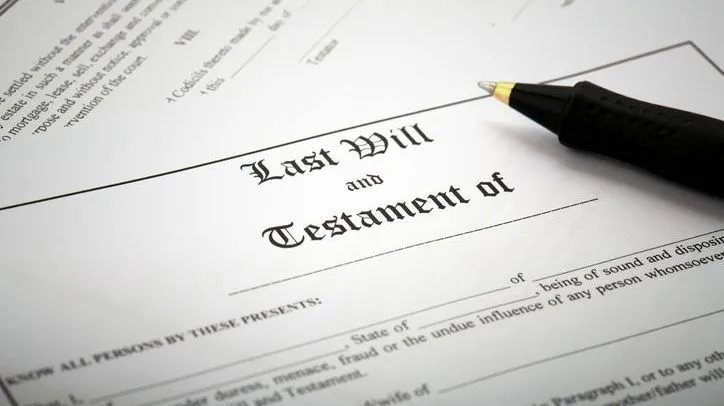Settling an estate after the death of a loved one can involve both legal and financial challenges. But having a well-organized settlement checklist can help streamline this process. Whether you’re an executor, beneficiary or simply planning ahead for your own estate, understanding the process of settling an estate is key for ensuring that it runs smoothly and the decedent’s final wishes are respected.
If you need financial advice with an eye toward legacy planning, consider working with a financial advisor with estate planning expertise.
Who’s Responsible for Settling an Estate?
When it comes to settling an estate, the responsibility typically falls on the executor or personal representative named in the deceased person’s will. This individual is tasked with managing the deceased’s affairs, including distributing assets to beneficiaries and paying off any debts or taxes owed by the estate. If there’s no will or executor named, the probate court will appoint someone to oversee the process, usually a close family member or friend.
The executor or personal representative’s duties may include locating and valuing assets, notifying creditors and beneficiaries, filing tax returns and ultimately distributing the estate according to the will or state law if there’s no will. It’s essential for the executor to act responsibly and ethically, as they have a fiduciary duty to the estate and its beneficiaries.
For executors and personal representatives, documenting every step of the estate settlement is vital. Keeping track of receipts, appraisals and all correspondence creates a transparent record of their stewardship.
1. Obtain Legal Documentation
Estate settlement begins with one critical step: gathering the correct legal documentation. These documents may outline the deceased’s final wishes and help streamline the distribution of their assets. They typically include:
- Will and trust documents
- Death certificate
- Property deeds and titles (real estate, vehicles)
- Stock certificates
- Life insurance policies
- Bank and retirement account information
- Documentation for any outstanding loans
The will and trust documents serve a central role in the settlement of an estate. They eliminate ambiguity and designate the individuals entrusted with carrying out the deceased’s wishes. Lack of such documentation can cause confusion and conflict among potential heirs. Also, other legal paperwork (like deeds and titles) is necessary to confirm the full extent of the deceased’s assets and liabilities. Executors require this information to distribute assets and settle liabilities in an informed manner.
2. Notify Relevant Parties
When someone passes away, notifying the right people and organizations right away could help prevent legal issues, make the estate settlement go smoother and stop any problems with creditors or taxes that might come from a late notice. It’s also key to avoid delays in getting to the deceased’s assets, as this can put a financial strain on the family members left behind who need those funds to pay for funeral expenses and other immediate costs.
Here’s whom you may need to notify:
- Anyone named in the will who will receive something from the estate
- The lawyer who worked with the deceased
- Banks where the person had accounts
- Credit card companies
- Social Security Administration and Veteran’s Affairs if the deceased served in the military
- Insurance companies and pension funds
- Local post office to reroute mail
3. Secure Assets and Valuables
The time right after someone dies can leave their estate open to risks. Securing the deceased’s property and valuables is one way to prevent theft or damage. Houses and personal items could be at risk as well, with people looking to take advantage. There’s also the chance that friends or family might take things they believe they’re entitled to, which can lead to arguments and legal complications.
Here’s a checklist to help secure the estate:
- Change the locks to keep out anyone who shouldn’t be there
- Make sure cars are parked in safe places
- Put important items in secure spots, like safes or safe deposit boxes
- Redirect mail to keep personal information safe
- Stop any services that aren’t needed to avoid unnecessary costs
- Check in with home security services if you have them
- Make sure insurance is up to date and covers everything it needs to
4. Inventory and Appraise Assets and Debts
The inventory process is not just a formality – it is the foundation upon which the entire estate settlement rests. Without a comprehensive and accurate list, executors and beneficiaries may encounter legal challenges that can complicate the distribution of the estate.
To avoid potential disputes, delays and additional financial burdens, executors must compile a thorough and precise record. This not only fulfills their fiduciary duty but also creates a path for a smoother transition of the estate’s holdings.
| Examples of Assets | Examples of Debts |
|---|---|
| Bank accounts and certificates of deposit (CDs) | Mortgages |
| Stocks, bonds and mutual funds | Vehicle loans |
| Retirement accounts | Credit card debt |
| Real estate | Personal loans |
| Personal belongings (vehicles, jewelry, art, etc.) | Unpaid bills |
Appraisers can play an important role by providing a fair and accurate assessment of an estate’s assets. These assets can vary widely, from real estate and art pieces – with valuations intricately tied to market demands – to collectibles like coins and antique furniture, where worth hinges on rarity and condition. Accurate appraisals ensure assets are equitably distributed and that estate taxes are calculated correctly.
Fair market value is central to asset appraisal, referring to the price that an asset would sell for on the open market, where both buyer and seller have reasonable knowledge of the asset and are willing to trade without being under duress.
5. Settle Debts and Taxes

It is the executor or personal representative’s role to use the estate’s funds to pay off any outstanding debts and expenses, such as mortgages and personal loans, as well as final medical and credit card bills. Doing so is not only a matter of integrity but a legal necessity, ensuring that all valid claims are settled before assets are transferred to heirs.
Understanding estate taxes is also crucial for executors. In essence, estate taxes are levied on the transfer of the decedent’s assets after death. Executors can work with tax professionals to navigate these waters, as errors can lead to financial harm to the estate. And when settling debts, executors should be wary of missing any creditor claims and ensure that tax returns are filed on time to avoid penalties and interest.
6. Distribute Assets
An executor or personal representative is responsible for the to fair and legal distribution of assets to beneficiaries. This could involve transferring ownership of property, liquidating investments and distributing personal belongings. The executor must manage this process while complying with the requirements of probate – or state intestacy laws if no will exists – to ensure that the will’s instructions or state laws are followed.
7. Close Accounts and Finalize Estate

Finalizing an estate involves a series of steps, from closing bank accounts and subscription services that belonged to the deceased to notifying relevant institutions and providing necessary documentation (such as death certificates and letters testamentary).
Once all assets have been distributed and debts settled, the executor or personal representative will petition the court for the final distribution of the estate and obtain a discharge from executorship.
Bottom Line
The executor role in settling an estate requires meticulous attention to detail, a deep understanding of legal obligation and a compassionate approach to managing the deceased’s affairs. Executors uphold their fiduciary duty by securing assets, inventorying debts, appraising values, settling obligations and distributing inheritances according to probate and intestacy laws.
Estate Planning Tips
- When planning your estate, it’s important to understand how probate works in your state. The probate process can take over year to complete in some jurisdictions and can be expensive, especially in states like California. If you’re concerned about privacy or want your assets to transfer to your beneficiaries as soon as possible after your death, you may want to consider strategies for bypassing probate like establishing a living trust.
- A financial advisor can help you plan with legacy planning. Finding a financial advisor doesn’t have to be hard. SmartAsset’s free tool matches you with up to three vetted financial advisors who serve your area, and you can have a free introductory call with your advisor matches to decide which one you feel is right for you. If you’re ready to find an advisor who can help you achieve your financial goals, get started now.
Photo credit: ©iStock.com/shapecharge, ©iStock.com/Jirapong Manustrong, ©iStock.com/roberthyrons
